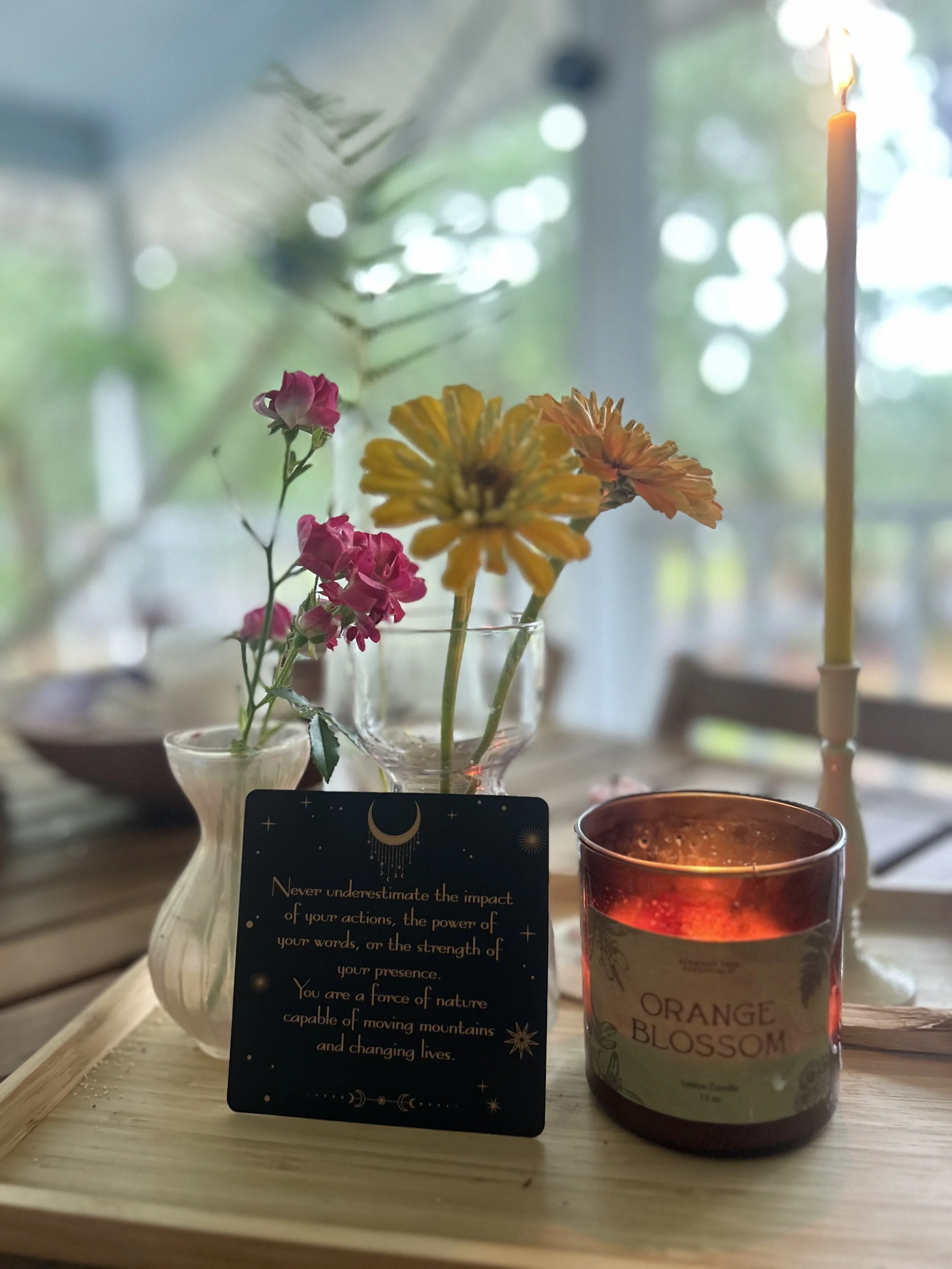Why Gratitude Is Important — and What to Do When You Can’t Access It
My take as a high-achiever who couldn’t access gratitude and can now
There was a time I couldn’t feel it.
I knew I should. I had so much to be grateful for: a successful practice, a high income, two beautiful children, a loving husband, and a renovated home.
And yet... I felt rushed. Exhausted. Like my nervous system was constantly on edge.
When I had free time, I couldn’t sit still and enjoy the moment. It felt uncomfortable.
Deep down, I knew there was a version of me that wasn’t high-strung.
Can you relate?
Have you been there?
Are you there now?
Let’s talk about gratitude.
In Build the Life You Want by Arthur Brooks and Oprah Winfrey, they explore the “negativity bias” which is our brain’s tendency to focus on what’s wrong. Gratitude, they say, is the antidote. Not just a feeling, but a life practice.
Gratitude is the practice of noticing, appreciating, and feeling the value of what is good or meaningful in your life, both big and small.
From a neuroscience perspective, gratitude stimulates the medial prefrontal cortex, the part of the brain’s reward circuit. It builds resilience, deepens connection, lowers blood pressure, and supports lasting happiness. In fact, in 2018 a study was done in which psychologists studied the impact of daily gratitude practices on overall happiness, and those who used it experienced 5 times as much positive emotion as the control group.
Arthur Brooks recommends that we include gratitude in our daily journaling to bring it into conscious awareness. It is the act of orienting towards it, noticing it, bringing out conscious attention to it in a process they call metacognition.
When you're facing something difficult, like a dreaded meeting, he says to try calling to mind something you're grateful for, even if it’s unrelated. This shifts your state. As an aside, I’ve never done this, and am looking forward to trying it in the future!
Another suggestion?
Imagine your own death.
A 2011 study found that when people vividly imagined their demise, their sense of gratitude increased by 11%.
Strange…and incredible.
I use a gentler version of this.
When my kids ask me to tuck them in and I feel too tired, I remind myself: there will be a day they won’t ask anymore. That one thought brings me into a new mindset, from frustration to presence and gratitude.
I try to do this throughout the day- orienting my mind to the small joys, which I call my rich life. In fact, I use my Instagram and social media posts to create a collection of reminders- a memoir of the beautiful moments of life.
It often looks simple- thank you for this coffee, these birds, this nourishing food…for all of these tiny glimpses of wonder and joy. Pausing and noticing them changes everything.
But I do wonder…Are there times when we can’t feel gratitude, no matter how hard we try?
I believe so. Or, at the very least, it is incredibly challenging.
There was a time when I knew I had so much to be grateful for… but I couldn’t feel it. I knew I should feel grateful, but I wasn’t, and that made me feel guilty.
Here’s my take: When our nervous system is maxed out, gratitude becomes challenging.
Why?
Because when we’re highly stressed, we lose access to the prefrontal cortex- the part of the brain that can reflect, connect, and orient to the bigger picture.
That’s why nervous system support is a core part of my coaching.
When a client tells me they feel disconnected from gratitude, it doesn’t mean something is wrong with them. It doesn’t mean they don’t have a beautiful life.
It is a signal.
A light shining, saying: Something is asking to change.
We slow down. We peel back the layers of extra events, shoulds, beliefs, so that we can move from exhaustion, rushing, and stress to the connection, presence, and richness of life and work.
Over time, my clients blossom again. The color re-emerges, and their light begins to shine brightly again.
This work is especially potent in moments of career transition or deep change. When everything feels uncertain, returning to the body, and to gratitude, changes everything.
I invite you to take a moment and reflect:
What are you grateful for?
People, places, daily moments, memories, connections- It can be big or incredibly small.
Can you feel it? Try closing your eyes and imagining it, really feeling it.
If this is challenging, is this a sign of something? A need for support? A shift? What is this moment in your life asking of you?

